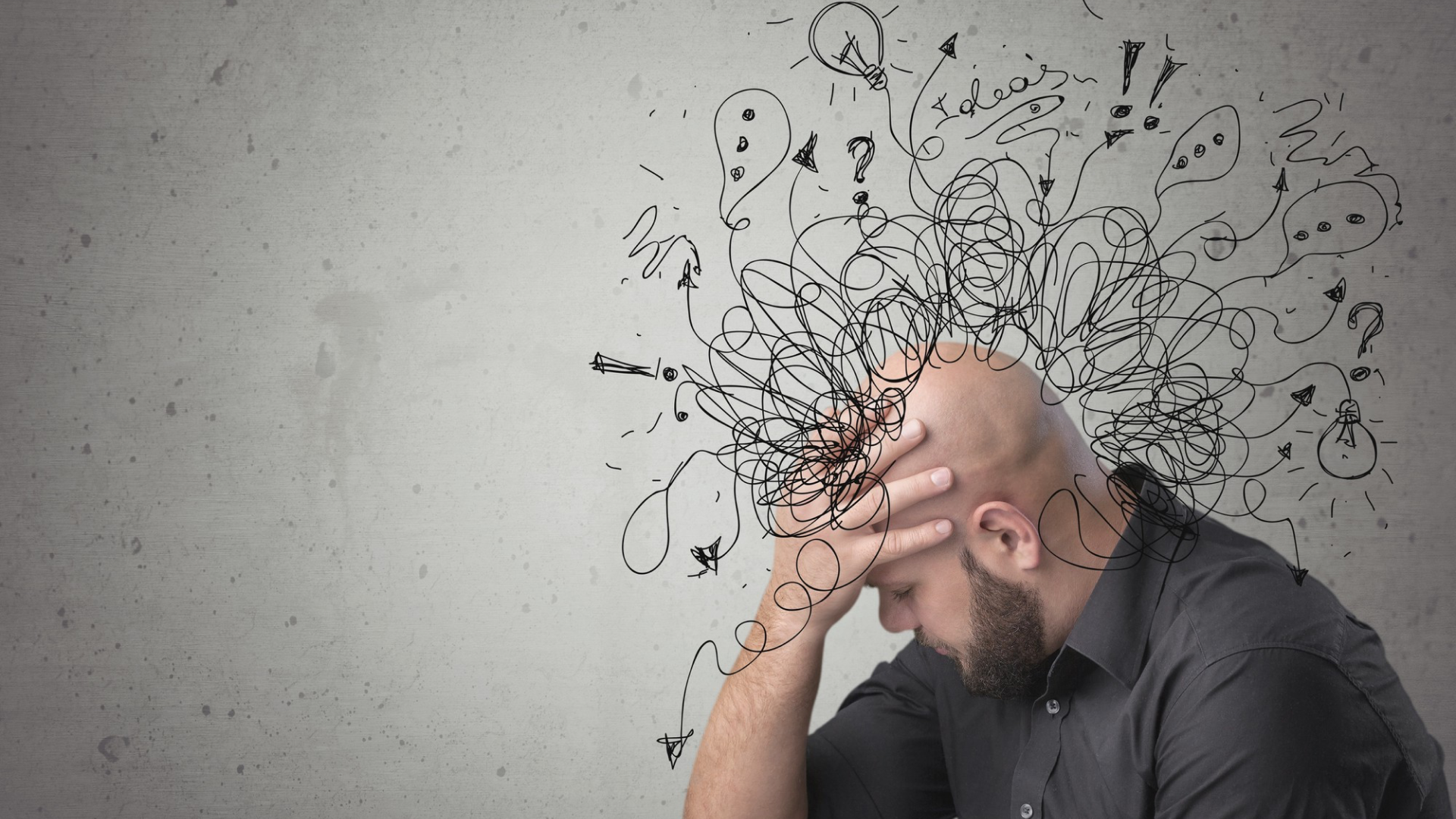Home / Mental Health Treatment / ADHD Treatment
Premier ADHD Treatment in Maryland
Amanda Stevens

Dr. Po-Chang Hsu, M.D., M.S.
Amanda Stevens
Jump to Section
Key points
- ADHD is a neurodevelopmental disorder characterized by inattention, hyperactivity, and impulsivity. It can persist into adulthood, impacting work, relationships, and personal well-being.
- People with ADHD are at higher risk of developing substance use disorders due to impulsivity and self-medication attempts.
- MARC offers personalized treatment plans focusing on symptom management and achieving long-term recovery goals.
What Is ADHD?
ADHD is a neurodevelopmental disorder characterized by persistent patterns of inattention, hyperactivity, and impulsivity that interfere with daily functioning and development.[1] While commonly associated with childhood, ADHD can persist into adulthood, affecting various aspects of life, including work, relationships, and personal well-being.[2] The disorder can look different for everyone, with some experiencing predominantly inattentive symptoms, others primarily hyperactive-impulsive symptoms, and many a combination of both.
ADHD is not simply a matter of being easily distracted or overly energetic. It’s a complex condition involving differences in brain structure and function, particularly in areas responsible for executive functions such as planning, organizing, and regulating behavior.[3] These differences can lead to challenges in sustaining attention, managing time, controlling impulses, and modulating activity levels appropriate to the situation.
Despite these challenges, many individuals with ADHD also exhibit strengths such as creativity, high energy, and the ability to hyperfocus on tasks they find engaging. Understanding ADHD as a neurobiological condition rather than a character flaw is crucial for proper diagnosis, treatment, and support.

Drug Addiction and ADHD
The relationship between ADHD and substance use disorders can be complex. People with ADHD are at a higher risk of developing drug addiction compared to the general population.[4] This increased vulnerability stems from several factors inherent to ADHD, including impulsivity, difficulty with self-regulation, and a tendency to seek immediate rewards.
For many with ADHD, substance use may begin as an attempt to self-medicate, temporarily alleviating symptoms or providing a sense of focus and calm. Stimulants, in particular, can produce effects that feel like relief from ADHD symptoms. However, this self-medication often leads to a dangerous cycle of dependence and addiction.
The presence of ADHD can complicate both the diagnosis and treatment of substance use disorders as well. Symptoms of ADHD may mask signs of addiction, or vice versa, making it challenging for healthcare providers to accurately assess and treat both conditions.[5] This underscores the importance of comprehensive evaluation and integrated treatment approaches.
At Maryland Addiction Recovery Center (MARC), we recognize the intricate connection between ADHD and addiction. Our integrated treatment model is designed to address both conditions simultaneously, providing a holistic approach to recovery. By treating ADHD and substance use disorders concurrently, we aim to break the cycle of self-medication and provide our patients with the tools they need for long-term success and improved quality of life.
If you or a loved one are struggling with both ADHD and substance use, know that specialized help is available. Seeking treatment that addresses both conditions can be a crucial step toward reclaiming control and achieving lasting recovery.
What Types of Therapy for ADHD Are Most Effective?
MARC utilizes a comprehensive approach to ADHD treatment in Maryland, incorporating a variety of evidence-based therapies that are customized to each person’s needs. Our integrated model addresses both ADHD symptoms and any co-occurring substance use disorders, paving the way for recovery and healing:[6]
At MARC, we believe that a combination of these therapeutic approaches, along with medication management when appropriate, offers the most comprehensive and effective treatment for ADHD. Our experienced team works closely with each client to create a personalized treatment plan that addresses their unique challenges and goals.
By providing a diverse range of therapies, we ensure that people with ADHD have access to a full toolkit of strategies for managing their symptoms and improving their overall quality of life.
ADHD Treatment for Adults at MARC
MARC’s comprehensive ADHD treatment program for adults is designed to address your specific needs and circumstances. We offer:
- Personalized treatment plans tailored to your individual symptoms and goals
- A range of evidence-based therapies, including CBT, DBT, and motivational interviewing
- Medication management with experienced psychiatrists for ADHD medication
- Practical life skills training to improve organization and time management
- Vocational support to help you thrive in your career
- Dual diagnosis treatment for co-occurring substance use disorders
Don’t let ADHD hold you back any longer. With the right support and strategies, you can harness your strengths and overcome your challenges. At MARC, we’re committed to helping you achieve lasting improvements in your daily life, relationships, and professional endeavors.
Take the first step towards a more focused, balanced life today. Contact MARC to schedule a confidential assessment and learn how our adult ADHD treatment program can work for you. Our compassionate team is ready to answer your questions and guide you on your path to better mental health and overall well-being.
Ready to take the first step?
Contact us today and discover how our comprehensive, long-term approach can transform your life. Your journey to lasting recovery and improved mental health starts here.
Frequently Asked Questions About ADHD Treatment in Maryland
Common symptoms of ADHD include:
- Inattention: Difficulty sustaining attention, easily distracted, making careless mistakes, difficulty organizing tasks.
- Hyperactivity: Restlessness, excessive talking, difficulty sitting still, constantly moving.
- Impulsivity: Acting without thinking, interrupting others, difficulty waiting for turns.
These symptoms can vary in severity and may present differently depending on the person.
There are several non-medication treatments available for ADHD. Behavioral therapies like Cognitive Behavioral Therapy (CBT) and Dialectical Behavior Therapy (DBT) aim to enhance coping skills, improve organization, and manage impulsivity. Parent training programs educate parents on effective strategies to manage their child's behavior and cultivate healthier family dynamics.
Educational interventions, such as specialized tutoring, classroom accommodations, and tailored behavioral plans, support academic success. Additionally, lifestyle adjustments like regular exercise, sufficient sleep, and a balanced diet can contribute to reducing ADHD symptoms and improving overall well-being.
Behavioral therapies have proven effective in managing ADHD symptoms, especially when combined with other treatments like medication. These therapies concentrate on teaching skills to enhance attention, organization, and impulse control.
They are customized to address each person’s specific challenges and can be modified for both children and adults with ADHD. Consistent participation in therapy sessions and ongoing application of learned techniques are essential for sustaining long-term effectiveness in managing ADHD symptoms.
Attention deficit disorder manifests differently in adults than in children. While hyperactivity symptoms may diminish with age, adults commonly contend with ongoing challenges related to inattention, including difficulty maintaining focus, being easily distracted, and forgetting details. Impulsivity remains a concern, characterized by impulsive actions, interrupting others, and struggles with patience. Additionally, adults with ADHD often experience difficulties with executive functioning, such as planning, organizing tasks, managing time effectively, and prioritizing activities. These symptoms can significantly impact relationships, work performance, and daily responsibilities for adults with ADHD.
Untreated ADHD can lead to various long-term consequences:
- Academic and occupational difficulties: Struggles in school or work due to poor focus, organization, and time management.
- Relationship problems: Challenges in maintaining relationships due to impulsivity, forgetfulness, and difficulty following through on commitments.
- Low self-esteem: Constant challenges in meeting expectations and managing responsibilities can affect self-confidence.
- Mental health issues: Higher risk for anxiety, depression, substance abuse, and other mental health conditions.
- Financial difficulties: Impulsivity and poor money management skills can lead to financial instability.
Early diagnosis and appropriate treatment can significantly mitigate these long-term impacts by improving symptom management and enhancing quality of life.
[1] CDC. (2024, May 15). Attention-Deficit / Hyperactivity Disorder (ADHD). Attention-Deficit / Hyperactivity Disorder (ADHD). https://www.cdc.gov/adhd/index.html on July 16, 2024
[2] Wilens, T. E., & Spencer, T. J. (2010). Understanding Attention-Deficit/Hyperactivity Disorder from Childhood to Adulthood. Postgraduate Medicine, 122(5), 97–109. National Library of Medicine. https://www.ncbi.nlm.nih.gov/pmc/articles/PMC3724232/ on July 16, 2024
[3] Mahone, E. M., & Denckla, M. B. (2017). Attention-Deficit/Hyperactivity Disorder: A Historical Neuropsychological Perspective. Journal of the International Neuropsychological Society, 23(9-10), 916–929. https://doi.org/10.1017/s1355617717000807 on July 16, 2024
[4] Zulauf, C. A., Sprich, S. E., Safren, S. A., & Wilens, T. E. (2014). The Complicated Relationship Between Attention Deficit/Hyperactivity Disorder and Substance Use Disorders. Current Psychiatry Reports, 16(3). https://www.ncbi.nlm.nih.gov/pmc/articles/PMC4414493/ on July 16, 2024
[5] Katzman, M. A., Bilkey, T. S., Chokka, P. R., Fallu, A., & Klassen, L. J. (2017). Adult ADHD and Comorbid disorders: Clinical Implications of a Dimensional Approach. BMC Psychiatry, 17(1). https://www.ncbi.nlm.nih.gov/pmc/articles/PMC5567978/ on July 16, 2024
[6] Mayo Clinic. (2023, January 25). Adult attention-deficit/hyperactivity disorder (ADHD) - Diagnosis and treatment - Mayo Clinic. Mayoclinic.org. https://www.mayoclinic.org/diseases-conditions/adult-adhd/diagnosis-treatment/drc-20350883 on July 16, 2024